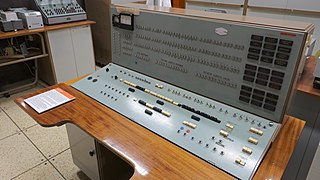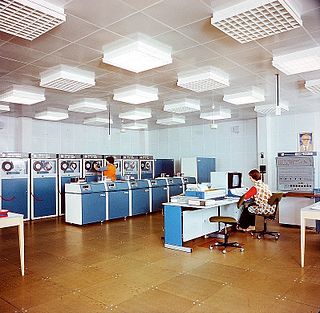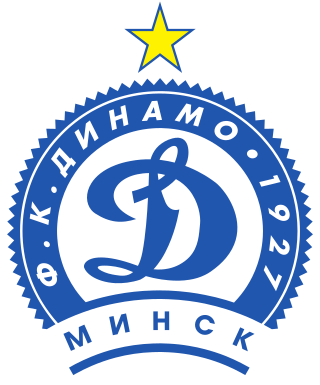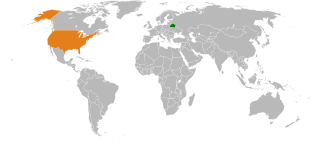See also
- Minsc, a Baldur's Gate videogame character
Minsk is the capital of Belarus.
Minsk may refer to:

Belarus, officially the Republic of Belarus, is a landlocked country in Eastern Europe. It is bordered by Russia to the east and northeast, Ukraine to the south, Poland to the west, and Lithuania and Latvia to the northwest. Covering an area of 207,600 square kilometres (80,200 sq mi) and with a population of 9.2 million, Belarus is the 13th-largest and the 20th-most populous country in Europe. The country has a hemiboreal climate and is administratively divided into six regions. Minsk is the capital and largest city; it is administered separately as a city with special status.

Minsk is the capital and the largest city of Belarus, located on the Svislach and the now subterranean Niamiha rivers. As the capital, Minsk has a special administrative status in Belarus and is the administrative centre of Minsk Region and Minsk District. As of 2023, it has a population of two million, making Minsk the 11th-most populous city in Europe. Minsk is one of the administrative capitals of the Commonwealth of Independent States (CIS) and the Eurasian Economic Union (EAEU).
Vostok refers to east in Russian but may also refer to:

The Byelorussian Soviet Socialist Republic, also known simply as Byelorussia, was a republic of the Soviet Union (USSR). It existed between 1920 and 1991 as one of fifteen constituent republics of the USSR, with its own legislation from 1990 to 1991. The republic was ruled by the Communist Party of Byelorussia and was also referred to as Soviet Byelorussia or Soviet Belarus by a number of historians. Other names for Byelorussia included White Russia or White Russian Soviet Socialist Republic and Belorussian Soviet Socialist Republic.
Mob or MOB may refer to:

Minsk family of mainframe computers was developed and produced in the Byelorussian SSR from 1959 to 1975.

The ES EVM, or YeS EVM, also known in English literature as the Unified System or Ryad, is a series of mainframe computers generally compatible with IBM's System/360 and System/370 mainframes, built in the Comecon countries under the initiative of the Soviet Union between 1968 and 1998. More than 15,000 of the ES EVM mainframes were produced in total.
Minsk (Ru:Минск), also known as M1NSK, is a Belarusian brand of motorcycles, scooters, ATVs and snowmobiles, produced by the Minsk Motorcycle and Bicycle Plant (MMVZ). The first M1A motorcycle was released in 1951. Since 2007, the company is a private enterprise. More than 6.5 million Minsk motorcycles have been sold worldwide.
Mir was a Soviet/Russian space station.
Satra Corporation was a US trading and metal processing company. It is primarily known in the United Kingdom for its Satra Motors Limited subsidiary, which was the official importer and distributor of Soviet Union cars and motorcycles in that country from 1973 to 1979. Satra is an acronym for "Soviet American Trade Association".

FC Dinamo Minsk is a Belarusian professional football club based in the capital city of Minsk.

The Ministry of Internal Affairs of Belarus, abbreviated МUS (МУС) in Belarusian and MVD (МВД) in Russian, is a body of the Belarusian Government that is charged with the internal affairs of Belarus. Day to day law enforcement is carried out by the Militsiya. The Ministry is also tasked with providing security to state buildings and officials. Organizations such as the Presidential Guard are under the control of the Ministry. The clearing of landmines is among the tasks of the ministry.

Interstate relations between the United States and Belarus began in 1991 upon the dissolution of the Soviet Union, of which Belarus had been a part. However, the relations have turned sour due to accusations by the United States that Belarus has been violating human rights. Belarus, in turn, has accused the United States of interfering in its internal affairs.
Oktyabrsky, Oktyabrskaya or Oktyabskoye may refer to:
Sokol is a Pan-Slavic physical education movement, with origins in the Czech lands.
Moscow Motorcycle Plant was a motorcycle manufacturer, based in Moscow, Russian SFSR.
Minsk II is the second cease-fire agreement in the War in Donbas, Ukraine.

The Minsk Independence Day Parade also known as the July 3 Parade is the main event of the Independence Day of Belarus. This parade is held annually in Minsk on July 3. It is held every year except years that celebrate Victory Day, to which Victory Day Parades are held.

The Minsk City Police Department officially known as the Main Directorate of Internal Affairs of the Minsk City Executive Committee is the main municipal police force in the Belarusian capital of Minsk with responsibilities that include law enforcement and investigation in the city.

The 1991 Belarusian strikes, also referred to in Belarus as the April Strikes, were a series of nationwide strikes and rallies in the Byelorussian Soviet Socialist Republic. Originally in opposition to price increases and a tax on goods from republics sold in another republic, the protests later turned into a broadly anti-Soviet movement, calling for the resignation of Soviet leadership, a reduction of the economic role of the Soviet government, and fresh elections to the Supreme Soviet of the Byelorussian Soviet Socialist Republic.